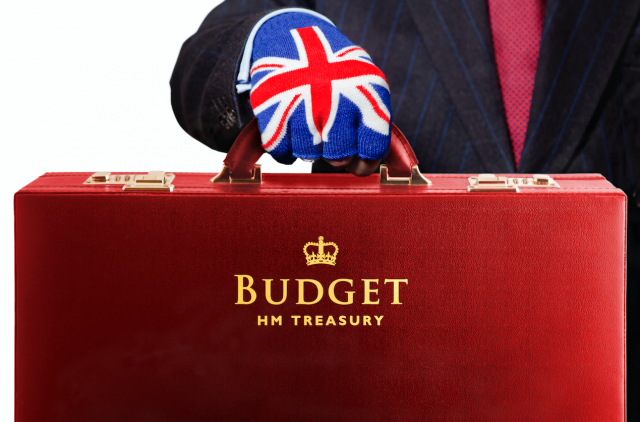This website uses cookies so that we can provide you with the best user experience possible. Cookie information is stored in your browser and performs functions such as recognising you when you return to our website and helping our team to understand which sections of the website you find most interesting and useful.
Four ways to make alcohol tax in the UK simpler and fairer
On Monday this week, WSTA chief executive Miles Beale outlined four of the simpler things that “the Chancellor could – and should – do as part of a ‘once-in-a-generation’ chance to re-design alcohol taxation in the UK”.

Writing on the WSTA site, he highlighted the opportunity for UK Chancellor Rishi Sunak in his autumn budget and spending review – which will be announced to the commons next Wednesday – to introduce a new, simpler and fairer approach for the drinks industry now that the UK is freed from a harmonised EU taxation system.
Although he said that evidence suggests that reducing taxes on alcohol can actually increase the amount of revenue raised for the Treasury, he said that such a move was unlikely, and noted that any reform of the current system would be done to at least maintain receipts from alcohol at their current level, meaning that changes will create “winners and losers”.
For example, he commented that taxing alcohol, rather than different drinks, would deliver increased taxation for beer and cider, reduced tax on spirits and leave the UK’s most popular alcoholic drink, wine, taxed at a similar level to now – but with the sparkling wine ‘supertax’ removed – fizz has a higher level of duty, which, as noted yesterday by db, sees an extra 63 pence charged on a bottle of sparkling wine (which attracts a duty of £2.86 per 75cl), compared to still (£2.23 per 75cl),
In particular, Beale picked out four changes that Sunak could make, and should consider, when reforming alcohol taxation in the UK.
As part of this he references analysis from the Institute for Fiscal Studies, which says that the current system is “a mess”, while also drawing attention to the problem with a mooted move to give English sparkling a tax advantage over foreign fizz, an idea you can read more about here.
Beale’s suggestions for a simpler, fairer tax system are reproduced below:
1. Tax alcohol, not products, to reduce and remove existing unfairness
Beale writes: Alcohol is one of the most heavily taxed products in the UK, but the most highly taxed products are sparkling wine, then spirits, then still wine; with beer and cider taxed least heavily. The last cut to wine duty was made by the Chancellor’s political hero, Nigel Lawson, in 1984. The unfairness has been exacerbated by successive Conservative governments, who have penalised the UK’s – and women’s – most popular alcoholic drink, wine, by 39% since 2010. This compares to beer – and men’s favourite – at 16%.
Taxing products in a way that reflects their alcoholic strength would sort out the “mess” identified by the Institute for Fiscal Studies, but also re-introduce fairness. Furthermore it would provide the right incentives for the fast-emerging lower strength alcoholic products sector – where the rules for tomorrow can be made today.
2. Design a system that supports British products, not one that favours them
Beale writes: Giving home-grown products more favourable taxation – or ‘drinks nationalism’ – would send a terrible signal to other countries and be counter-productive. It would encourage retaliation in key export markets for English sparkling wines, gin and Scotch whisky – which would damage both current and future growth. As if that logic was not sufficient, favouring home-grown products would be incompatible with WTO rules. Finally, there is a far better way to ‘Back British’ than something as limited as “preferential keg taxes”. The Chancellor should think bigger and longer: incentivise consumers to visit the production sites of all British alcoholic drinks. Reduce duty on products bought on-site from the UK’s growing number of distilleries, vineyards or cider mills and breweries – to incentivise diversification, support tourism and generate new, often rural, jobs.
3. Respect international definitions
Beale writes: As the world’s biggest spirits exporter and second largest wine importer, the UK is a global hub for the international drinks industry. Any new system for taxing alcohol that cuts across international definitions of spirits (generally above 37.5%) or wine (between 8.5 and 15% ABV) would put that – and some 360,000 jobs – in jeopardy.
There are other good reasons too, for example a ‘tax on sunshine’ that sees higher duty for wine from Australia than wine from France would make a mockery of post-Brexit Global Britain’s tilt at trading differently.
4. Harvest the low hanging fruit
Beale writes: Abolish the sparkling wine ‘supertax’ (c.30% more than still wine), which is holding back English and Welsh wine – some 70% of which is sparkling.
And finally…
In the same opinion piece, Beale draws on figures to show that, since 2010, the duty on wine has gone up by 39%, for spirits it has risen by 26%, while it has increased for cider by 21%, and 16% for beer.
Read more
Mooted tax advantage for English sparkling could do more harm than good
Britain’s excise duties on alcohol to be “radically overhauled”

